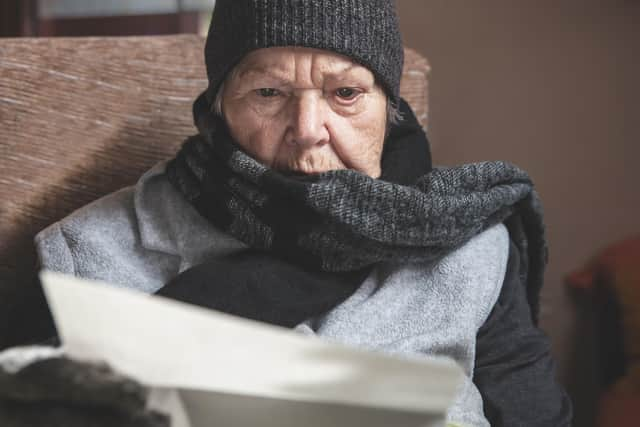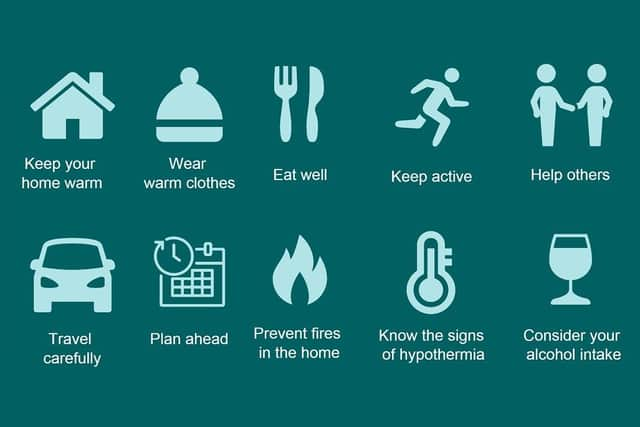Top 10 winter tips for Derry & NW: Rise in Covid, flu, colds, vomiting bug and scarlet fever
and live on Freeview channel 276
The warning comes during the extreme cold being experienced by people across the north west and beyond over the course of the past week.
It is hoped the advice will help some people boost their immunity and avoid the need for medical intervention as services are stretched.
The Trust said it was particularly concern about flu as Covid restrictions in recent years meant there has been much less 'flu circulating in our communities and therefore immunity in the population is low.


The Trust has seen a rise in winter ailments including coughs and colds, Influenza, Covid-19 and Norovirus (winter vomiting disease).
They also said it was important that parents and carers are aware of signs and symptoms of possible infections such as Scarlet fever which is currently circulating.
Encouraging the public to take up the opportunity to get their flu and COVID-19 booster vaccinations, Seamus Ward, Western Trust Head of Health Improvement, said: “There are things we can all do to ensure our community keeps well and I would encourage our staff and the wider public to boost their immune system and protect themselves from serious illness this winter by booking their vaccination as soon as possible.”
“It is vitally important that we make people more aware of the effects of cold weather and provide advice on staying healthy. We are particularly aware of the challenges of people keeping their homes warm due to the cost of living crisis and are working with partner agencies to ensure we get the message out to the local communities on what support and advice are available to help them through the winter months."


Western Trust’s 10 tips:
Advertisement
Hide AdAdvertisement
Hide AdKeep your home warm - Draw your curtains at dusk and keep your doors closed to block out draughts. Your main living room should be between 18-21C (64-70F) and the rest of the house at a minimum of 16C (61F). Use a hot water bottle or electric blanket (but not both at the same time) in bed.Wear warm clothes - Wrap up warm, inside and out. Wear several thin layers of clothes in order to keep the warm air trapped between them. Wear hats, gloves and scarves and wear shoes with a good grip if you need to go outside. Eat well - Try to eat regular hot meals to keep your energy levels up and drink hot drinks to help you to feel warmer for longer. Keep active - Move around at least once an hour and don’t sit down for long periods of time. Help others - Check on friends, relatives and neighbours who may be more vulnerable in cold weather. Make sure they're warm enough, especially at night, and have stocks of food and medicines.Travel carefully - Icy pavements and roads can be extremely slippery. Take extra care if you go out, and wear boots or shoes with good grip on the soles. Bear in mind that black ice on pavements or roads might not be clearly visible, and compacted snow may turn to ice and become slippery.Plan ahead – check the weather forecast before traveling so that you are prepared for journeys and keep a list of people at hand that you can contact if you are unable to get out of your home .Prevent fires in the home - Unplug heaters/blankets when not in use. Don’t leave candles unattended. Do not use portable heaters for drying clothes. Make sure you have a fitted and working smoke alarm and carbon monoxide monitor.Recognise the signs of hypothermia - Hypothermia is caused by being in a cold environment. People who are particularly at risk are those who are elderly, ill or babies. If someone you know has been exposed to the cold and they are distressed, confused, have slow, shallow breathing or they're unconscious, they may have severe hypothermia. In this case, dial 999 immediately to request an ambulance. While waiting for medical help, it is important to try to prevent further heat loss and gently warm the person.Consider you alcohol intake – Staying within the lower risk guidelines will go a long way to avoiding cold-related dangers such as hypothermia and falling. Knowing how you’re getting home, sticking with friends and wearing warm clothes will also help to ensure you have a safe night out.